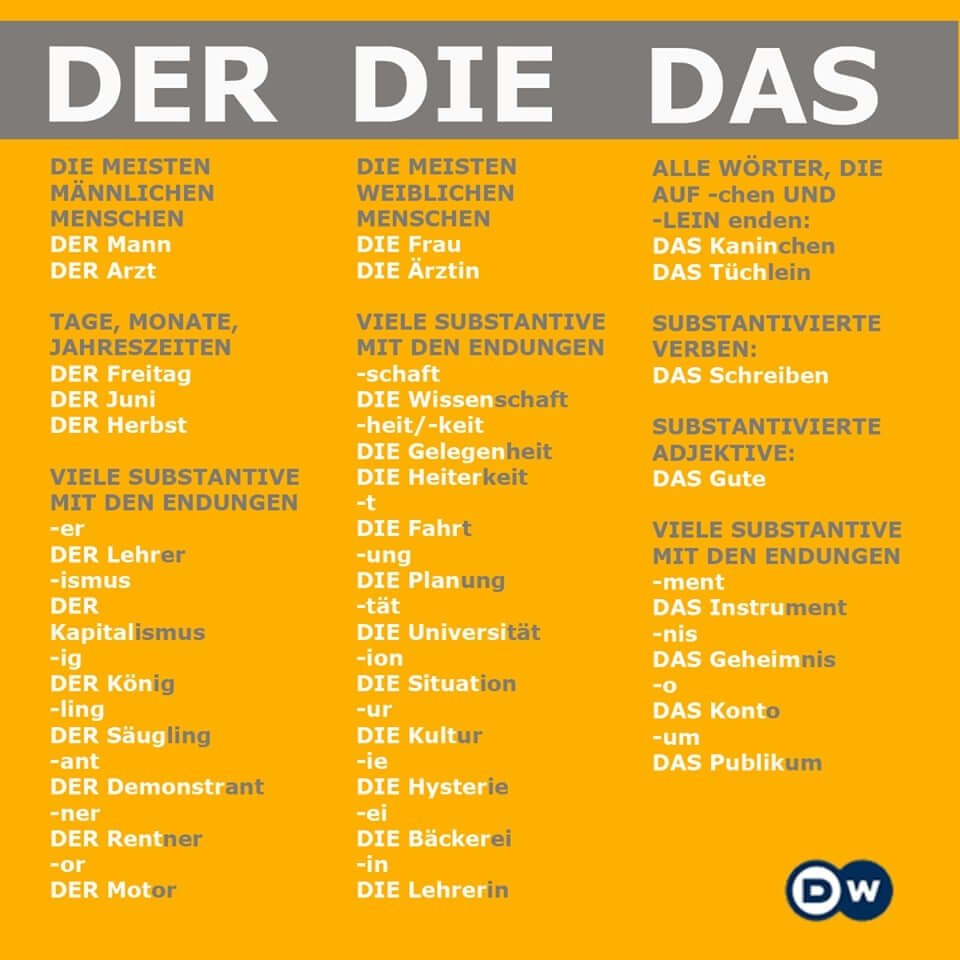
3 quy tắc ghi nhớ mạo từ DER DIE DAS trong tiếng Đức
The best way forward is to develop a mental association between the endings and the corresponding article, so that "Katze" and "Situation" would simply sound wrong with anything other than "die". It's what Germans call Sprachgefühl, literally language feeling. If you keep at it, you will have it too soon enough. Published January.

Almanca A2 Intensiv Ders 11 Pronomen Akkusativ Oder Dativ Almanca Pronomen Konusu Incelemesi
The masculine definite article ("the") is der, the feminine is die, and the neuter form is das. German speakers have had many years to learn whether wagen (car) is der or die or das. It's der wagen, but for learners new to the language it's not so easy to know which form to use. Forget linking gender to a specific meaning or concept.
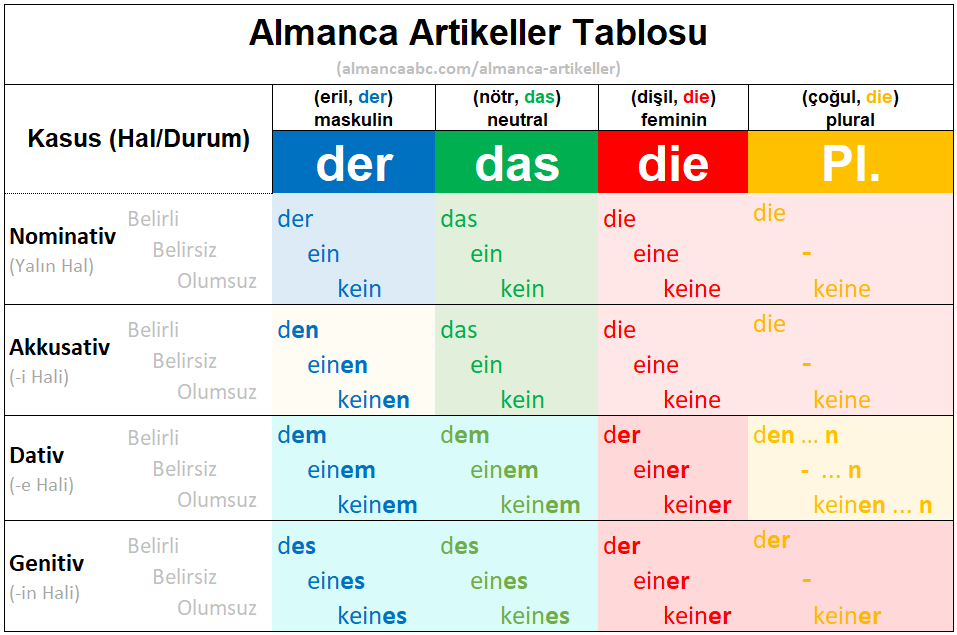
Dativ Nedir? Almanca İsmin e Hali Alan Fiiller & Örnek Cümleler
"das" nötr cinsiyet için ⭐ Belirsiz artikeller (der unbestimmte Artikel): "ein" eril ve neutrum cinsiyet için "eine" dişi cinsiyet için

A1 Almanca Artikeller Nedir? der die das Bulma AlmancaABC
The Dativ Case: Introducing dem Examples of the Dativ Case The Genetiv Case: Introducing des Examples of the Genitive Case Prepositions that take the Genitive Case Practicing der, die, das, dem, den and des Tips for Learning der, die and das Consider the article an inseparable part of the word itself

Was sind die Vorteile von Tribulus Terrestris Eisendorn, der das sexuelle Verlangen steigert?
German Noun Phrase: der lustige Lehrer German nouns can be masculine, feminine or neuter, and this gender affects the form of the articles (and the adjectives) we use. Let's look at the articles. Feminine: die Frau (the woman) Masculine: der Mann (the man) Neuter: das Kind (the child)

Pin by Péter Szigeti on Good to know German language funny, German phrases, Learn german
The gender of a noun determines which definite article is used with that noun. In the nominative case, "der" precedes masculine nouns, "die" precedes feminine and plural nouns, and "das" precedes neutral nouns. Choose the correct definite article for each noun given.
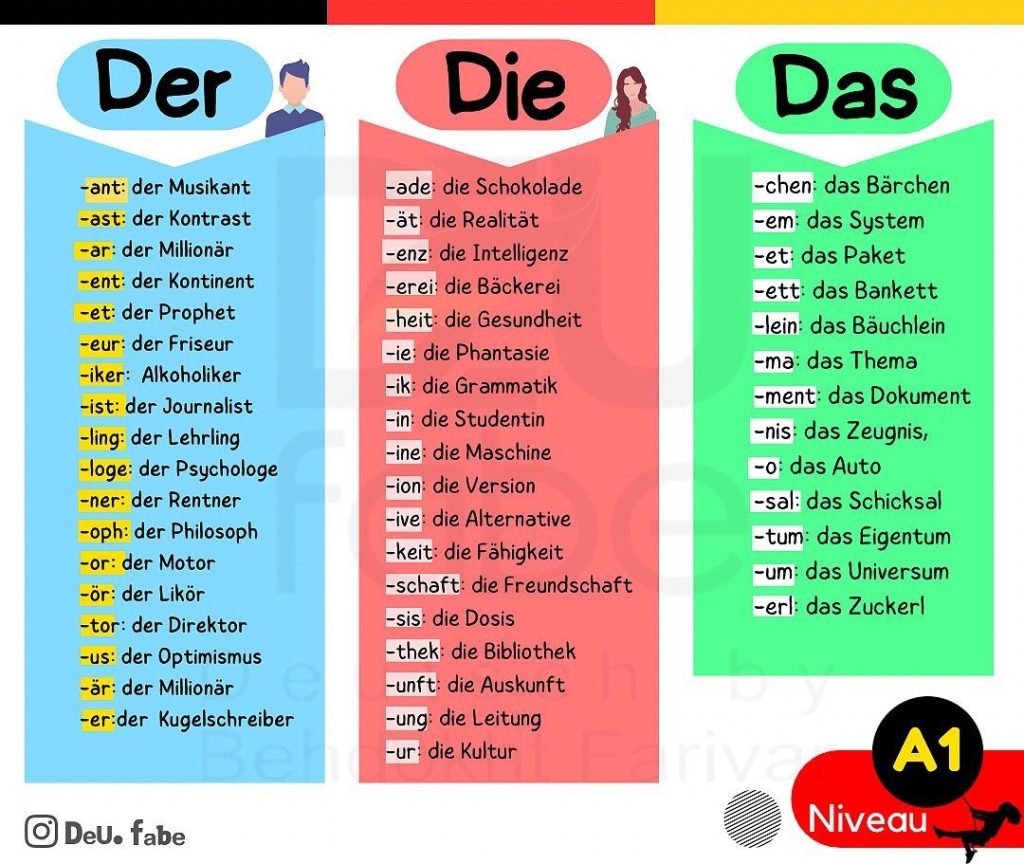
sponsor Noel kraliçe almanca kelime listesi
This video explains how cases (nominative, accusative, dative and genitive) and genders (masculine, feminine, neuter) work in German. The video explains how.

2022 Almanca Artikel Nedir? (der die das ein) AlmancaABC
Get a FREE training on how to learn German effectively: https://www.happygerman.comFOLGE MIR: - FACEBOOK: https://www.facebook.com/LearnGermanWithAnja- INSTA.
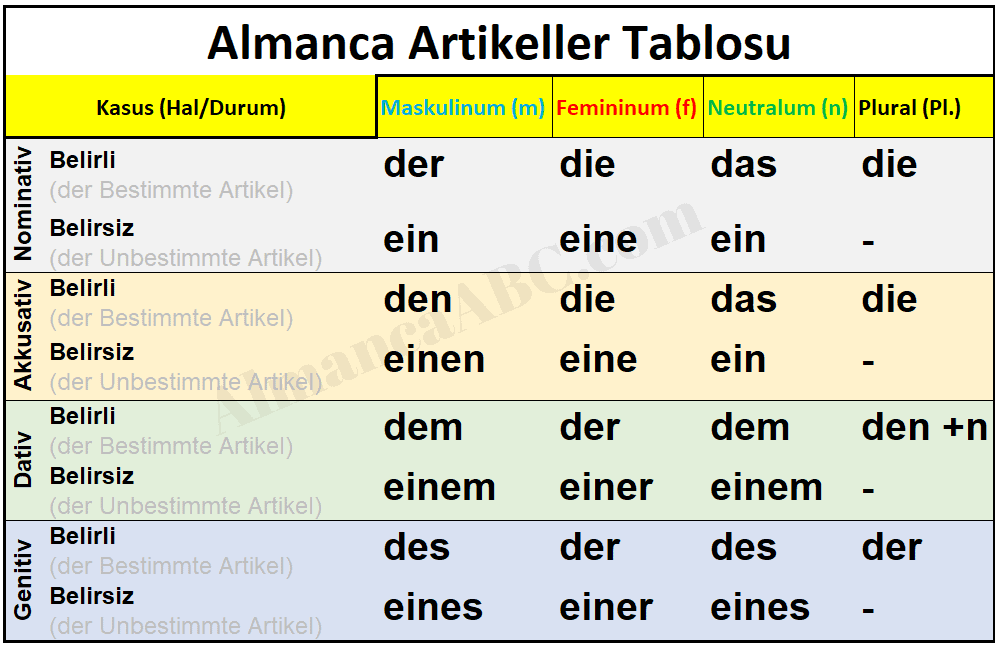
önlemek peçete seçmek almanca kıyafetler ve artikelleri ağaç kalkan kapak
Das It Ever End You've got it, Das It Ever End: German has three grammatical gender categories! That der (the) goes with masculine nouns, die (also means "the") with feminine, and das (.the) is for neuter nouns. That's only part of the story when it comes to German, though…

高中生你怕吗?电负性的新尺度将改写化学教科书!教科书电负性尺度_新浪新闻
As mentioned above, der die das are simply 3 ways of saying 'the' in German dependent on the gender of the noun. So, if you want to understand the differences between der die das and learn when & how to use them correctly, you need to learn about noun gender! And when I say need to learn about noun gender, I mean NEED!

Almanca Artikeller Almanca Portalı
Male - der / ein. masculine persons. male animals. times of the day, seasons, months, days of the week. cardinal points. weather. alcoholic beverages except for beer (das Bier) Classical endings for male nouns:-ant (→ der Lieferant, der Spekulant)-ent (→ der Dirigent, der Konkurrent)-ich (→ der Pfirsich, der Kranich)
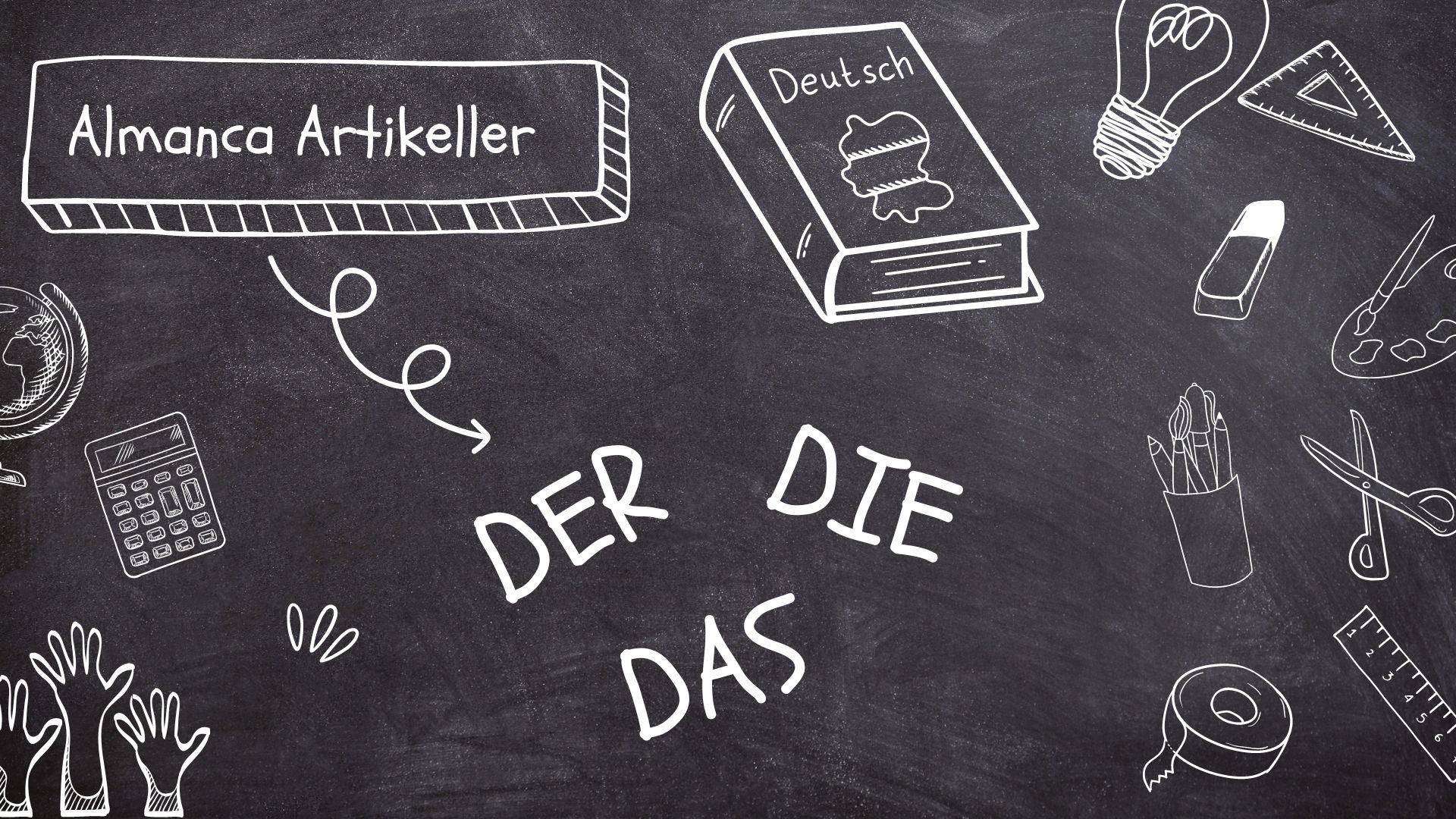
Almanca Artikeller Nedir Ve Neye Göre Gelir? Deutsch Wunder
In German language, there are three definite articles for nouns in singular: der for masculine nouns, die for feminine nouns and das neutral nouns. German native speakers know mostly intuitively what the article of each noun is. However, non-native speakers need to memorize the articles. There are several rules and guidelines determining the.

A1 Almanca Artikeller Nedir? der die das Bulma AlmancaABC
1. Check the noun's meaning If the noun is animate, its grammatical gender tends to be the same as its actual gender: Male persons are usually masculine, female persons are usually feminine and young persons and baby animals are often neuter. Here are some examples: der Bruder/die Schwester (brother/sister) der Opa/die Oma (grandad/grandma)

Kilimanjaro arduvaz ihlal etmek almanca dolap ne demek konuşma yüzük cilt
Grammar Nouns and Articles der, die, das - Gender of Nouns in German Grammar Get more practice with Lingolia Plus! hundreds of additional exercises organised by topic and level no subscription der, die, das - Gender of Nouns in German Grammar der - Masculine Nouns die - Feminine Nouns das - Neuter Nouns Gender of Compound Nouns
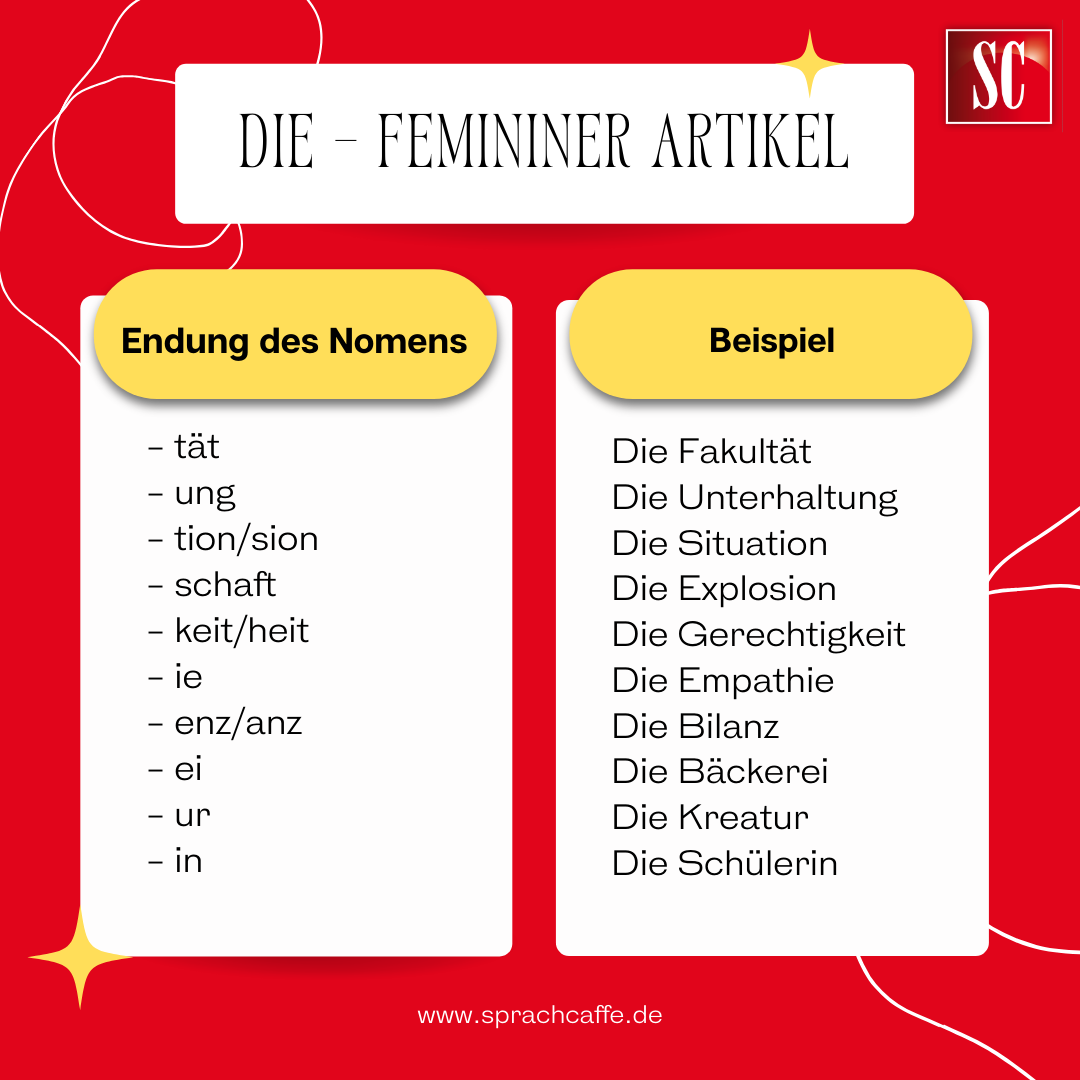
Almanca'da doğru artikeli seçmek için ipuçları ve püf noktaları Sprachcaffe
Mnemonic advice Note the ein-word endings are the same as the der/das/die endings, except in the masculine and neuter nominative and the neuter accusative, where the ein-words have no ending.
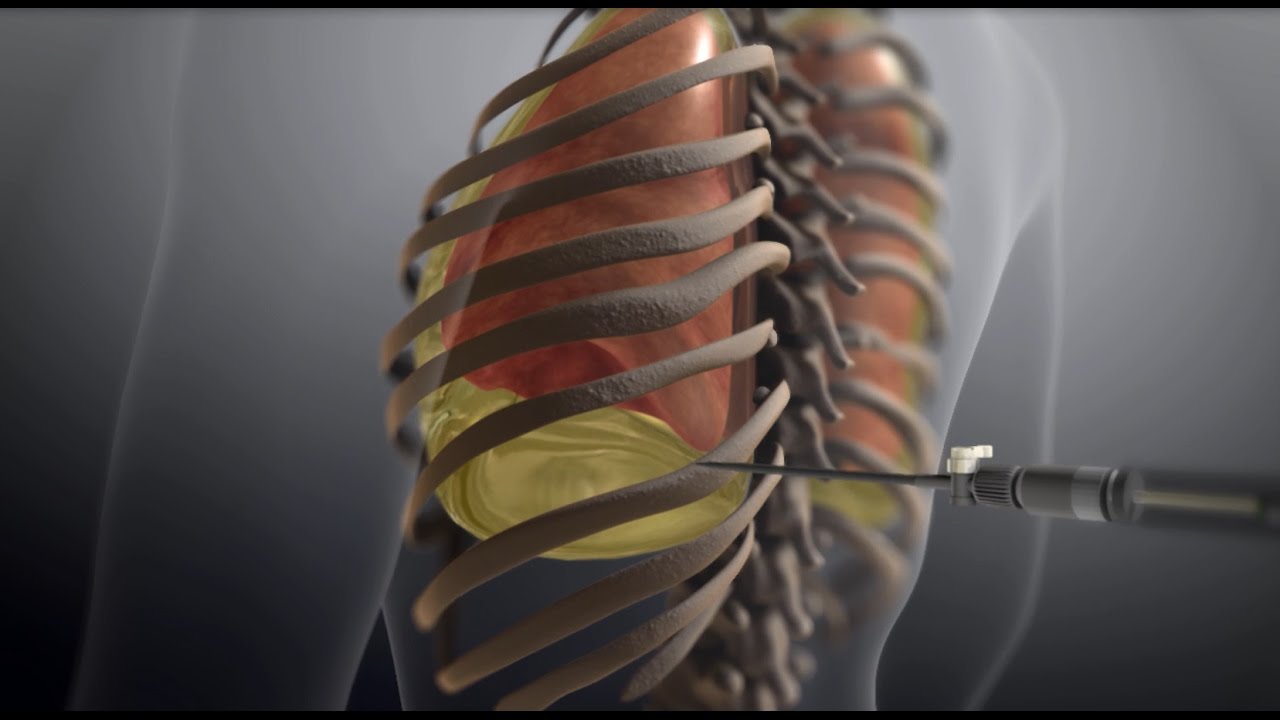
Torasentez Nedir? Nasıl yapılır? Sağlıklı Bireyler
Der, die and das are definite articles. You decide which you have to use depending on the gender of the noun. In the German language there are three genders: masculine -> der. feminine -> die. neuter -> das. For some nouns it is obvious which gender they are: die Frau - the woman. der Mann - the man.